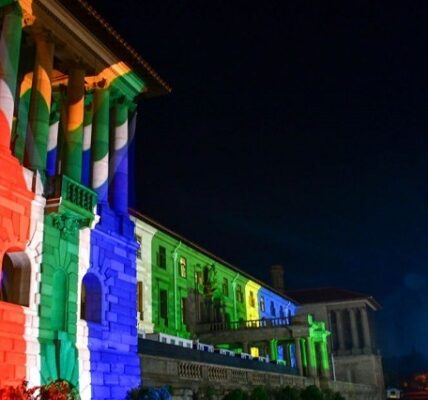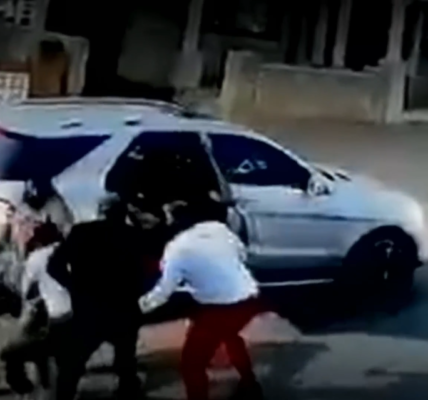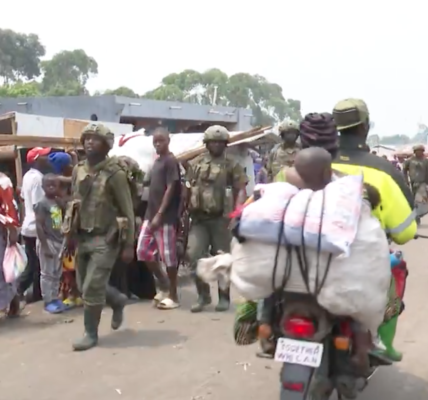
The Global Initiative Against Transnational Organised Crime (GI-TOC) has documented a 108% increase in political killings in South Africa over the last decade, with at least ten politically-related assassinations between January and April this year. While South Africa has long grappled with high levels of violence, averaging approximately 70 murders a day, targeted killings have notably escalated. Hitmen have become more daring, incidents more public, and victims more high-profile. This includes a brazen attack on an advocate of the South African Revenue Service (SARS), Corné Naude. In this article republished with permission from Vrye Weekblad in South Africa, Johann van Loggerenberg, a former executive at SARS turned whistleblower who has faced threats and warnings against his safety for years, calls for a new strategy to combat crime in South Africa. Without it, he says, the ambitions of the new Government of National Unity will die.
Assassinations: the war we have to win
Attacks like the one on Sars advocate Coreth Naudé show that a new strategy is needed to beat crime. Without it, the government’s other ambitions will wither and die, writes former Sars executive JOHANN VAN LOGGERENBERG.
LAST week, an advocate of the Pretoria Bar was accosted and shot in an assassination attempt. Coreth Naudé was in Durban for a South African Revenue Service (Sars) inquiry into the tax affairs of the controversial Shauwn Mkhize (also sometimes referred to by her former surname, Mpisane, or as MaMkhize).
Coreth Naudé, an advocate, who was the victim of an assasination attempt while in Durban for a tax inquiry.
After the day’s proceedings, Naudé returned to her hotel in Umhlanga, and as she entered the car park she encountered gunfire from brazen criminals who clearly intended to murder her. She sustained bullet wounds to her face, neck and upper body.
As Freedom Under Law pointed out after last Friday’s shooting, it was just the latest in a string of similar attacks on investigators and whistleblowers. Liquidators Cloete and Thomas Murray, City of Johannesburg investigator Zenzele Sithole, Gauteng Department of Health whistleblower Babita Deokaran, Anti-Gang Unit detective Lieutenant-Colonel Charl Kinnear and many others have been killed to delay, distort and pervert the rule of law.
Naudé’s would-be assassins escaped in a silver Toyota Corolla with cloned number plates. While one should be careful not to jump to conclusions without sufficient facts, it is safe to say that the assailants wanted Naudé dead. Their motive is yet to be determined.
Coreth Naudé was involved with an inquiry into the tax affairs of the controversial Shauwn Mkhize (picture), when she was shot.

That said, there is no indication that this was a robbery as no attempt was made to take anything. The use of multiple shooters and the cloned vehicle suggest a level of sophistication not ordinarily associated with opportunistic crimes.
Time will tell whether the criminals will ever be identified and brought to book. Too many such cases end up unsolved.
Miraculously, Naudé survived after emergency surgery, and she is seemingly recuperating well. According to those who know her and have worked with her, she is a humble and pleasant person who wouldn’t hurt a fly. In my own experience, she is a consummate professional, an expert in tax litigation and a force to be reckoned with because of her commitment to diligence and detail.
That someone would want to murder her is shocking. She was serving our country at the time of the incident. Legal bodies, civil society and Sars publicly condemned the attack, and it would appear the Hawks are investigating the case.
Gunmen approached Naudé in a hotel parking lot in Umhlanga and opened fire with several shots.
The emasculation of Sars
When I heard of the shooting, I immediately thought of my testimony before the state capture commission of inquiry in March 2021. None of it was challenged or disputed and no one sought to cross-examine me. The only challenge came from state security operatives who made an unsuccessful application to prevent my testimony or have it heard in secret.
Nevertheless, no media attended that day, and what I had to say after almost a decade of not being heard received little to no public attention. Part of my evidence dealt with the genesis and escalation of hostilities by criminals against Sars officials whose purpose is to address criminality.
My testimony highlighted the worrying escalation of malice and threats against Sars enforcement officials and warned of the future realities for those who fight crime. I spoke of how Sars, like the rest of the world’s revenue and customs authorities, had a clear and powerful role to play in combating organised crime. And I explained how it was dismantled almost overnight by the state capture gang and others who stood to gain by the destruction of an efficient enforcement capacity.
I testified how, at first, criminals would attempt to corrupt and bribe officials. Then they resorted to threats against officials and people close to them. When these failed, and as Sars became more efficient in holding organised crime characters accountable, incidents of odd break-ins, smash and grabs, illegal surveillance at our homes and of our families, shootings, kidnappings and murders occurred. However, these also failed and Sars’ small but efficient enforcement efforts continued to sow havoc among criminal syndicates.
They feared Sars, make no mistake. They knew that once we knocked on their doors, their ill-gotten gains and potentially their freedom were at risk. Not that our criminal justice system was ever perfect in our young constitutional democracy, but its ability to counter organised criminals grew from the late 1990s into the 2000s.
We once had the Scorpions, we welcomed the Asset Forfeiture Unit, the Financial Intelligence Centre and the Special Investigating Unit, and a plethora of new laws aimed to combat corruption and organised crime, and confiscate the illicit proceeds of crime. Sars was central to all of these.
The government was beginning to make an impact. Then disaster struck in the form of state capture, and every other sycophant and tax dodger took the opportunity to advance nefarious personal and political agendas and make their troubles disappear. Crime shot through the roof and the brazenness of criminal acts increased.
The fightback by the bad guys morphed and became more vicious. The police, Hawks, prosecuting authority, Sars’ enforcement capacity and other parts of the criminal justice system came under siege and ultimately became weak and ineffective.
Eventually, the criminals didn’t only go after the individuals who stood in their way but targeted entire units and departments, aiming to wipe them out by infiltrating the media and quasi-legal fora. Ultimately, they converted organs of state into tools of destruction to make their own cases disappear.
Many of those who remained silent at the time — the weak of will, the corrupt and the co-conspirators — remain within the government, quietly doing nothing and hiding behind silence and the fear of those who could expose them but won’t because the cost would be too high.
I can never forget how in late 2019 a senior government official told me: “I wouldn’t want what happened to you guys to happen to me …” The message was clear: the bad guys have struck fear into the hearts of the good guys.
That must worry us all. It speaks volumes. It means that some who are expected to fight crime on our behalf are running scared. And if they’re running scared, the crooks are winning.
We must be in no doubt that as officials at Sars and other agencies in the criminal justice system begin to reassert themselves against organised crime, we can expect more of what we saw during the state capture years.
There will be attempts to bribe officials, threats and assaults, more assassination plots and probably the most complex of all challenges: false allegations, supposed “intelligence dossiers” seeking to discredit crime fighters, and in particular the leveraging of sensational media “exposes” — and the abuse of our intelligence apparatus to do so.
The crisis of crime
Naudé’s ordeal isn’t unusual. People are assaulted, shot at and murdered daily. Corruption is commonplace and few citizens can claim not to have been a victim of crime.
I have written before about the dysfunctionality of the criminal justice system and I have nothing more to add to this. The way forward is as clear as daylight. We can only hope the new government and MPs will take heed and act more swiftly.
While addressing poverty, unemployment and inequality remain paramount priorities, combating crime should be elevated to the same level. Time has run out and we have had enough debates and discussions. If we do not beat crime, efforts to address the other three priorities will fail. These issues are inextricably intertwined and each inexorably feeds into the others.
If anything is to be learned from Naudé’s harrowing ordeal, it should be this: crime has reached endemic proportions that require urgent and decisive action, and the way things have been done so far is not working.
We need to be smarter and more agile. We need to take lessons from the past and, where required, revive the capabilities we have lost to bring us back to the baseline we once achieved. We need to rediscover our backbone.
Naudé’s attempted assassination is also symbolic. It demonstrates the reality of every hardworking and effective servant of the state involved in combating organised crime. They have to live and deal with this sort of a risk on a daily basis.
If the criminals continue at this rate, they will not only remove those they’re up against but discourage others doing the same work.
This is a war and the good guys must win. The alternative is unthinkable.
- Johann van Loggerenberg is a tax practitioner, consultant, researcher, legal adviser and author. After a 16-year career at Sars, he resigned in 2015 as group executive in charge of projects, evidence management and technical support.



































































































































































































































































































